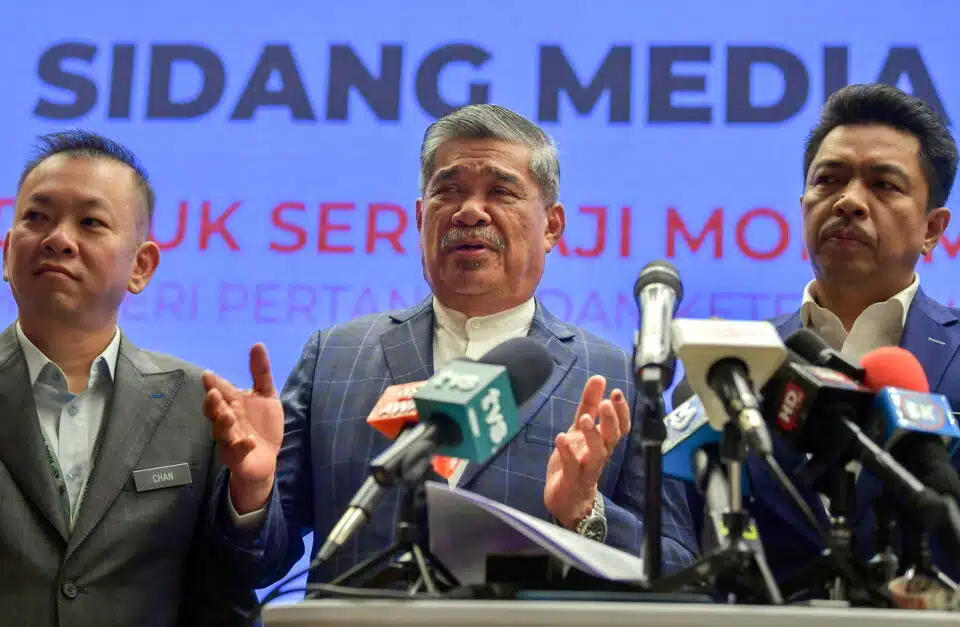KUALA LUMPUR, Oct 30 — The Agriculture and Food Security Ministry (KPKM) is leaning towards a targeted subsidy formula should the price of chicken rise sharply again after the end of subsidies and chicken price ceiling controls that come into effect on Nov 1.
Its minister Datuk Seri Mohamad Sabu said that targeted subsidies were seen as more appropriate to ensure that only the needy and affected could enjoy the subsidy.
“If the increase (in chicken prices) is extreme, we intend to give targeted subsidies to the affected B40 group because if we give blanket subsidies, it will only benefit the towkay (boss) and large manufacturers.
“The price of (chicken feed) grain corn and soya bean has decreased, therefore the price of chicken has also dipped. there are even places that sell chicken for less than RM7 (per kg),” he said when winding up the debate on the Supply Bill 2024 for the ministry in the Dewan Rakyat today.
Mohamad said as announced at the press conference regarding the termination of the chicken subsidy this morning, the government’s decision to stop the subsidy for the protein source was the right decision.
He said suppliers also assured that the chicken supply is sufficient for now and in the future, besides increasing production of the food source.
Meanwhile, commenting on Padiberas Nasional Berhad’s (Bernas) rice monopoly issue as a single gatekeeper, he said Bernas’s privatisation model is cross-subsidy, meaning that import profits will be used to carry out duties and responsibilities given by the government.
“Compared to the previous concession agreement between the government and Bernas, improvements have been made by determining that Bernas will carry out 10 social obligations on behalf of the government worth RM3.2 billion covering various programmes and incentives throughout the value chain for the period of the new concession agreement (which ends in 2031).
“Therefore, the policy implemented at this point is still relevant in facing the current situation. Bernas’ performance as the main importer of national rice is constantly monitored and evaluated by the government through the achievement of its key performance,” he said.
Meanwhile, Minister of Higher Education (MOHE) Datuk Seri Mohamed Khaled Nordin said the government does not plan to cancel the loan debt of the National Higher Education Fund Corporation (PTPTN) this time.
He said this was because the total number of borrowers was 3.86 million as of Sept 30 and if the cancellation proposal was approved, it would involve financial implications totaling RM70.48 billion.
“The cancellation of PTPTN debt is not just a debt cancellation on paper. It actually means that if it is done, the government has to bear and pay all the debts on behalf of the borrowers.
“Seeing that the amount required for the government to pay off this debt is too large, the cancellation of the PTPTN debt is something that the government cannot afford to do today,” he said when winding up the debate on the Supply Bill 2024 for the ministry.
The Dewan Rakyat continues tomorrow.
— Bernama





